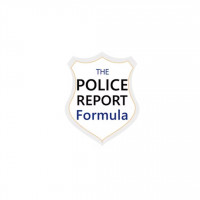Why Law Enforcement Courses Online Are Rewriting Police Training

Strong 8k brings an ultra-HD IPTV experience to your living room and your pocket.
In the high-pressure world of law enforcement, one action outlives the sirens, the calls, and even the arrests: the report. A police report is not just a recap of an incident—it becomes the foundation for legal decisions, departmental reviews, and public accountability. Yet, despite its vital role, report writing is often undervalued and undertrained in traditional academy or in-service sessions. That’s changing now. The rise of law enforcement courses online has begun shifting how officers write, document, and defend their actions—and one name is leading the charge: Police Report Formula.
What Role Does Writing Play In Modern Law Enforcement?
The nature of policing has transformed drastically in recent years. Officers are not only expected to de-escalate situations and respond swiftly, but they’re also expected to document these moments with accuracy, neutrality, and legal precision. A poorly written report can break a case. It can undermine years of police work or sway a judge or jury. Report writing has moved from being a procedural afterthought to a core skill—equal in importance to defensive tactics or weapon retention.
Report writing is the final voice an officer has after an incident. It may be months or even years later that the same report resurfaces in court. Judges, attorneys, internal investigators, and even civilians scrutinize every word. This shift has redefined how training is delivered and what agencies expect from their officers. A clear, consistent, and complete report is no longer a “nice to have”—it’s a must.
How Did Report Writing Training Fall Behind?
Historically, officers learned to write reports by copying others or receiving generic academy instruction. This left them to fill in gaps on their own. Some developed effective habits, but many did not. The structure, tone, and content often varied between officers within the same agency. Supervisors would spend unnecessary time correcting reports, and attorneys would frequently find weaknesses in the language used.
The root problem? The absence of a practical, replicable writing formula that officers could apply regardless of the scenario. That’s where structured, skill-focused training makes a difference. Especially when it's embedded into scalable law enforcement courses online, accessible by individuals or entire departments.
Why Is Online Police Officer Training A Game-Changer?
Time, location, and scheduling constraints have long been obstacles for law enforcement agencies trying to update their training. Hosting a full-day seminar or pulling officers off the road to attend lectures is costly and logistically difficult. Enter online police officer training—a solution that removes barriers while still delivering top-tier instruction.
The convenience of learning from any device, at any time, allows officers to pace themselves and revisit material as needed. And with the right platform, online training can be just as engaging and impactful as in-person sessions. It’s no longer about convenience alone—it’s about outcomes. What matters is that the officer logs off the course with a new set of practical tools, especially in writing, that they can apply immediately.
What Makes Effective In-Service Training Stand Out?
In-service training is often treated like a check-the-box requirement. But when it's done with the right intent and structure, it becomes one of the most valuable tools in an agency's arsenal. Quality law enforcement in service training builds uniformity across reports, enhances departmental reputation, and reduces the risk of litigation due to ambiguous or incomplete documentation.
What sets meaningful in-service training apart is its commitment to real-world problems. Officers need instruction that goes beyond legal definitions—they need practical examples, live breakdowns of flawed reports, and hands-on experience that mimics their day-to-day challenges. The best in-service training reprograms how officers view report writing. It doesn't make them robotic; it makes them reliable.
Why Do Officers Need A Formula For Report Writing?
When officers are taught to “just write what happened,” it sounds simple—until the adrenaline fades and the pressure to recall every detail kicks in. That’s when structure becomes indispensable. A writing formula offers officers an anchor. It tells them where to start, how to sequence events, and what language to avoid.
That’s the genius of Police Report Formula. Rather than overwhelming officers with abstract theory, the course delivers a method—a repeatable approach that transforms how officers think and write. Officers learn to separate facts from interpretation, to detail events chronologically, and to write reports that hold up under scrutiny without sounding robotic or clinical. The formula makes reports stronger, not stiffer.
What Results Are Departments Seeing From Better Writing?
Agencies that have adopted advanced report writing instruction are seeing impressive results. Supervisors report spending less time correcting or rewriting reports. Legal teams feel more confident presenting the documentation. And officers themselves experience increased confidence when testifying, because their written reports reflect clear and accurate recollections of events.
Departments are also noticing fewer internal disputes related to poorly documented encounters. The clarity in documentation serves as a protection for the officer, the department, and the public. When everyone understands what was written and why, misunderstandings decrease, and trust increases.
Why Is Police Report Formula The Right Choice?
There are plenty of generalized training courses on the market. But few speak directly to the unique challenge of police report writing—and even fewer offer a blueprint officers can use immediately. Police Report Formula focuses entirely on giving officers tools they can apply from the very first module. It is not a theory course. It's a skill course.
Led by a retired detective sergeant with decades of frontline and investigative experience, the program reflects real-world needs. The approach is digestible, applicable, and proven. From rookie patrol officers to seasoned investigators, everyone benefits from strengthening their written voice. What separates Police Report Formula is its laser focus on report writing—not as an academic exercise, but as a tactical skill that protects careers and cases.
How Does This Improve Community and Courtroom Trust?
When reports are vague, biased, or disorganized, the public and the courts notice. That weakens community trust and complicates prosecution. On the other hand, when reports are well-structured, transparent, and fact-driven, they inspire confidence. The public may not read every report, but attorneys, judges, and oversight bodies do—and their perception often influences public discourse.
Training that improves documentation ultimately strengthens the integrity of the justice system. When an officer can stand behind their words confidently and clearly, the system as a whole stands taller. That’s why the quality of report writing isn't just a departmental issue—it’s a public trust issue.
Why Now Is The Time To Invest In Officer Writing
The current climate in law enforcement demands that officers not only act with professionalism but document with precision. The old “figure it out on your own” model of learning to write reports no longer works. Agencies can’t afford the legal or reputational risks that come with weak documentation. Nor can officers afford to write reports that don’t fully reflect their professionalism.
Training solutions like Police Report Formula offer something we haven't seen enough of in policing: writing confidence. It’s not about turning every officer into a novelist—it’s about giving them the structure, language, and tools to document their work accurately and effectively. That’s a win for the officer, the department, and the community.
Final Thoughts
If there’s one lesson agencies across the country are learning, it’s that documentation matters as much as action. Without a clear, reliable method for writing reports, officers and departments are vulnerable to misunderstanding, litigation, and public criticism. But with the right instruction—specifically through comprehensive law enforcement courses online—they’re empowered to tell the truth the right way, every time.
Police Report Formula isn’t just a course; it’s a solution. A solution for officers struggling with writing. A solution for departments seeking consistency. And a solution for a profession that deserves to be represented with clarity and integrity in every word.
Note: IndiBlogHub features both user-submitted and editorial content. We do not verify third-party contributions. Read our Disclaimer and Privacy Policyfor details.


